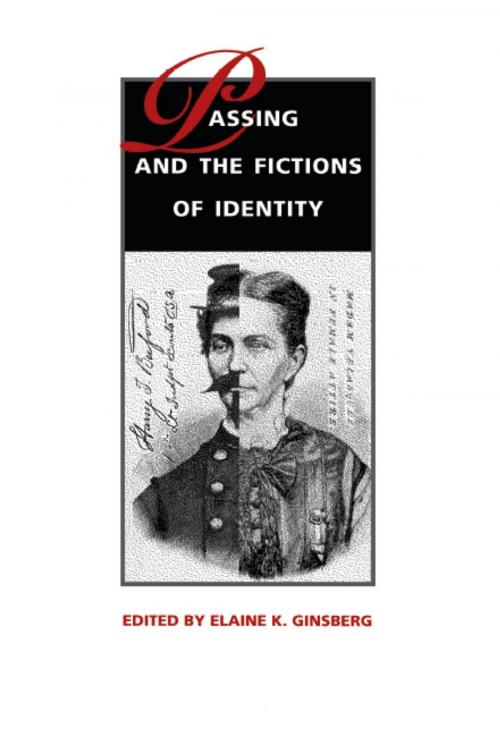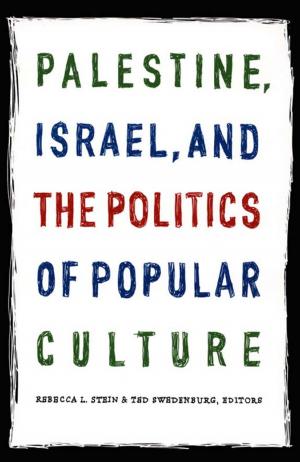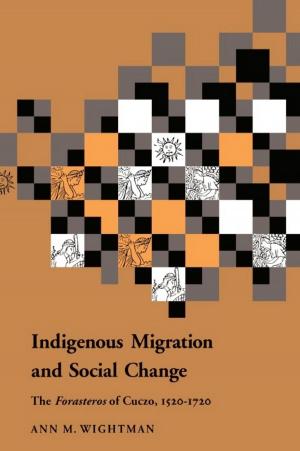| Author: | Donald E. Pease | ISBN: | 9780822382027 |
| Publisher: | Duke University Press | Publication: | April 29, 1996 |
| Imprint: | Duke University Press Books | Language: | English |
| Author: | Donald E. Pease |
| ISBN: | 9780822382027 |
| Publisher: | Duke University Press |
| Publication: | April 29, 1996 |
| Imprint: | Duke University Press Books |
| Language: | English |
Passing refers to the process whereby a person of one race, gender, nationality, or sexual orientation adopts the guise of another. Historically, this has often involved black slaves passing as white in order to gain their freedom. More generally, it has served as a way for women and people of color to access male or white privilege. In their examination of this practice of crossing boundaries, the contributors to this volume offer a unique perspective for studying the construction and meaning of personal and cultural identities.
These essays consider a wide range of texts and moments from colonial times to the present that raise significant questions about the political motivations inherent in the origins and maintenance of identity categories and boundaries. Through discussions of such literary works as Running a Thousand Miles for Freedom, The Autobiography of an Ex–Coloured Man, Uncle Tom’s Cabin, The Hidden Hand, Black Like Me, and Giovanni’s Room, the authors examine issues of power and privilege and ways in which passing might challenge the often rigid structures of identity politics. Their interrogation of the semiotics of behavior, dress, language, and the body itself contributes significantly to an understanding of national, racial, gender, and sexual identity in American literature and culture.
Contextualizing and building on the theoretical work of such scholars as Judith Butler, Diana Fuss, Marjorie Garber, and Henry Louis Gates Jr., Passing and the Fictions of Identity will be of value to students and scholars working in the areas of race, gender, and identity theory, as well as U.S. history and literature.
Contributors. Martha Cutter, Katharine Nicholson Ings, Samira Kawash, Adrian Piper, Valerie Rohy, Marion Rust, Julia Stern, Gayle Wald, Ellen M. Weinauer, Elizabeth Young
Passing refers to the process whereby a person of one race, gender, nationality, or sexual orientation adopts the guise of another. Historically, this has often involved black slaves passing as white in order to gain their freedom. More generally, it has served as a way for women and people of color to access male or white privilege. In their examination of this practice of crossing boundaries, the contributors to this volume offer a unique perspective for studying the construction and meaning of personal and cultural identities.
These essays consider a wide range of texts and moments from colonial times to the present that raise significant questions about the political motivations inherent in the origins and maintenance of identity categories and boundaries. Through discussions of such literary works as Running a Thousand Miles for Freedom, The Autobiography of an Ex–Coloured Man, Uncle Tom’s Cabin, The Hidden Hand, Black Like Me, and Giovanni’s Room, the authors examine issues of power and privilege and ways in which passing might challenge the often rigid structures of identity politics. Their interrogation of the semiotics of behavior, dress, language, and the body itself contributes significantly to an understanding of national, racial, gender, and sexual identity in American literature and culture.
Contextualizing and building on the theoretical work of such scholars as Judith Butler, Diana Fuss, Marjorie Garber, and Henry Louis Gates Jr., Passing and the Fictions of Identity will be of value to students and scholars working in the areas of race, gender, and identity theory, as well as U.S. history and literature.
Contributors. Martha Cutter, Katharine Nicholson Ings, Samira Kawash, Adrian Piper, Valerie Rohy, Marion Rust, Julia Stern, Gayle Wald, Ellen M. Weinauer, Elizabeth Young















